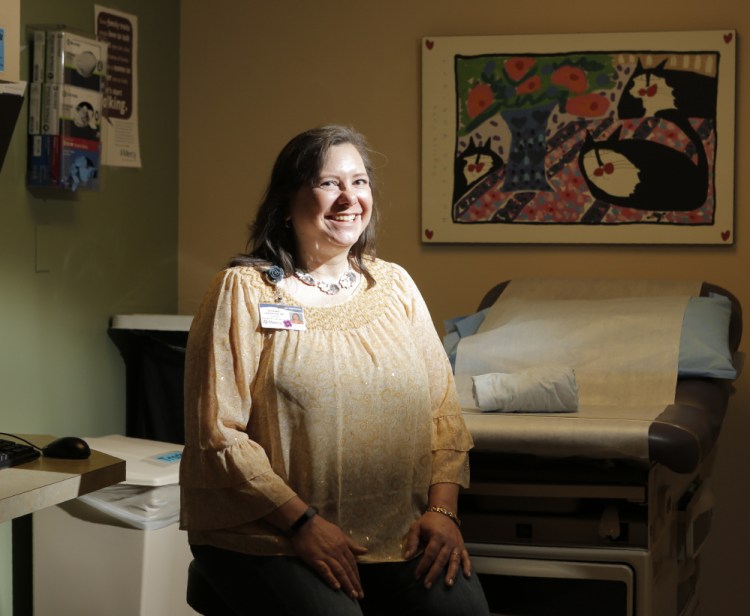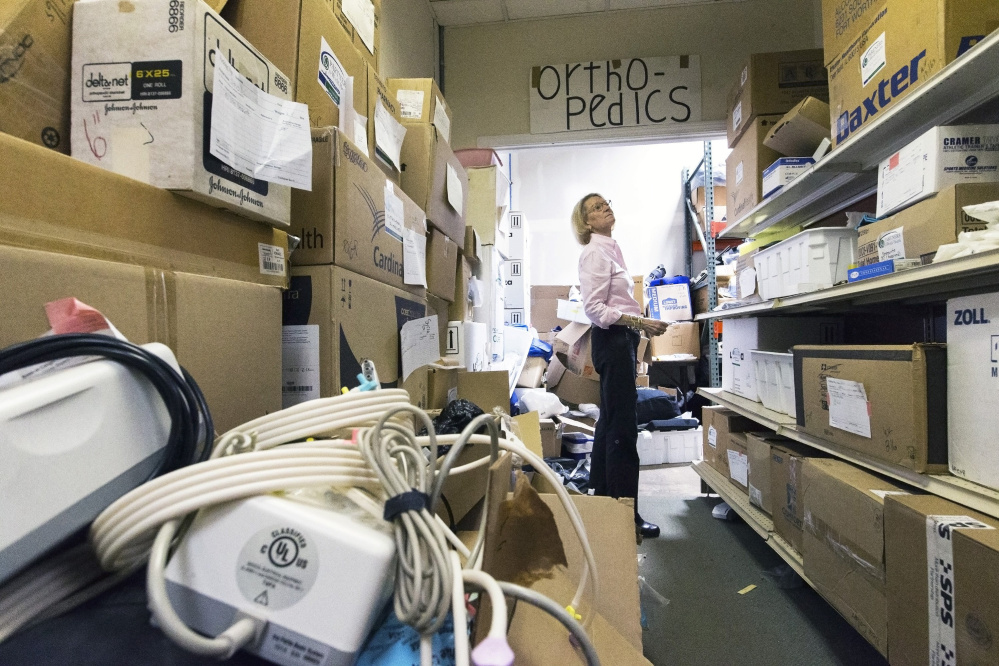Partners for World Health is not only expanding its operations to ship medical supply donations to Third World countries, but the rapidly growing nonprofit is also increasing its “medical mission” trips abroad to try to improve basic medical care.
This year, the Portland organization went on six medical missions, most recently to Bangladesh in October, to treat patients with breast cancer and teach medical professionals best practices for such patients.
Elizabeth McLellan, 66, a former Maine Medical Center nurse who founded Partners for World Health, said the organization has been on missions to Bangladesh since 2011, including twice in 2017 for breast cancer missions.
“It’s really helpful to develop these long-term relationships,” said McLellan, who left last week on another medical mission, this time to Cameroon on a cleft palate and burns mission.
Joining McLellan on the 10-day trip to Dhaka, Bangladesh, were Dr. Suzanne Hoekstra of Mercy Hospital, Dr. Robert Horowitz of York Hospital and Dr. Tracey Weisberg of MaineHealth, among others.
Hoekstra said Bangladesh lacks the medical equipment to conduct widespread mammograms, so the team worked on teaching medical professionals how to diagnose by examining patients for lumps, and getting patients regular checkups.
“The death rate for breast cancer there is very high,” Hoekstra said. “They just don’t have the resources. We taught them to work with what they have and to screen as much as possible. So if someone comes to the hospital with a foot problem, go ahead and give them a breast cancer examination. You don’t know when you’re going to see them next.”
She said the team taught the doctors and nurses surgical techniques as well as best practices for chemotherapy and radiation treatments. Hoekstra said she estimates she saw 25 patients and taught 200 medical professionals.
“They were really appreciative of us being there and trying to help them,” she said. “I find it really gratifying to help people who really need it.”
McLellan said nurses in Bangladesh are underutilized and lack access to continuing education after they get their nursing degrees. She said by showing doctors how valuable it is to have input from nurses, the culture can change.
McLellan said a 20-year-old woman the team was treating with Stage 4 breast cancer died after the mission returned to the United States. Had they detected the cancer earlier, she likely would have lived.
“In remote areas of a country of 160 million people, they simply don’t have access to these kind of opportunities to get basic health care,” McLellan said. “No one should be dying at age 20 of breast cancer.”
McLellan founded Partners for World Health in 2007 as a way to redirect medical supplies that were set to be thrown away in the United States to other countries, where there are shortages of supplies.
The idea has proved so popular that Partners has outgrown its facilities several times. Now the organization operates five warehouses and can send out a full shipping container of medical supplies once per month, McLellan said. Partners moved into a larger, 15,000-square-foot warehouse on Walch Drive in Portland in 2016 and expanded to a new location this year near Burlington, Vermont. It is now set up in five locations, including two buildings in Portland, as well as Bangor, Presque Isle and Vermont.
McLellan said the medical missions have also grown, from three to four missions per year to five or six, with teams going to places like Tanzania, Libya, Peru, Uganda and Cameroon, in addition to Bangladesh.
Send questions/comments to the editors.





Comments are no longer available on this story